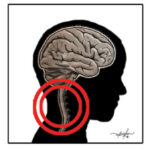The British public health institute has signed an agreement to help strengthen international health regulations (IHR) in Nigeria and four other countries estimated at £16m, around N7.5 billion.
The agreement comes days after two patients were hospitalised for monkey pox in the UK, and they have been found to have travelled to Nigeria, which last year had an outbreak.
Public Health England (PHE) and the Nigeria Centre for Disease Control (NCDC) signed the agreement in Abuja to strengthen health security as part of a £16 million project funded by the British Department of Health to support capacities of public health institutes in five countries.
In Nigeria, the project will focus on disease surveillance, emergency preparedness and response, public health laboratory services as well as workforce development.
British high commissioner to Nigeria, Paul Arkwright at the signing called for strong collaboration among public health institutes to ensure global health security.
“The United Kingdom recognizes that we must work closely with other countries in our efforts to build strong and resilient health systems globally,” he said.
“The partnership between PHE and NCDC would contribute to ensuring the world is much safer and less vulnerable from the threat of infectious diseases”.
Duncan Selbie, Chief Executive of PHE, said,“The IHR strengthening project is very much a partnership and invaluable opportunity for both countries to learn from each other. By working together and sharing expertise, both countries become stronger and that is our joint ultimate aim.”
NCDC will coordinate the IHR strengthening programme and provide staff to drive collaboration with the federal ministry of health and environment as well as agriculture and rural development.
“We are grateful for this opportunity which formalises and strengthens the existing relationship between NCDC and PHE,” said NCDC chief executive Chikwe Ihekweazu.
“We look forward to building on this cooperation, for national and global health security.”

 Join Daily Trust WhatsApp Community For Quick Access To News and Happenings Around You.
Join Daily Trust WhatsApp Community For Quick Access To News and Happenings Around You.


